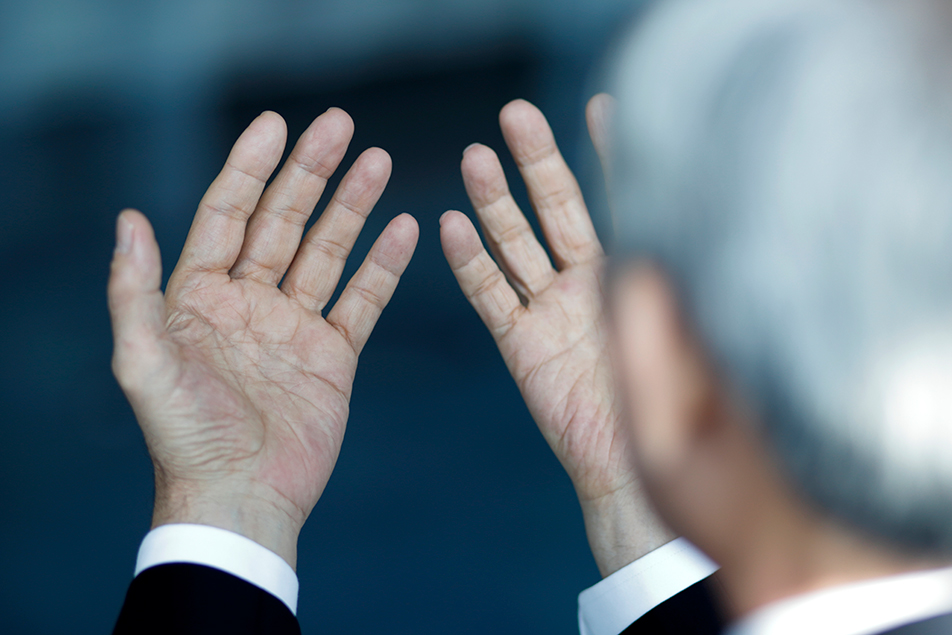
Like many complex medical conditions, Parkinson’s disease brings with it a host of worries, concerns, medications and lifestyle modifications. Sharing the frustrations of such a degenerative disease with someone who understands can be a welcome lifeline. Join Donna Smith, outpatient physical therapist, as she discusses this life-altering condition, her role as a physical therapist, and how Parkview Noble Hospital supports those living with the disease.
Offering support
Parkview Noble Hospital offers a support group to individuals with Parkinson’s Disease, with Donna as its facilitator since the group’s launch in 2010. Not only has she accumulated considerable knowledge and expertise through her specialized training and work with patients dealing with Parkinson’s disease, but she also lives with the reality of the disease every day. Donna’s husband was diagnosed with the progressive illness 18 years ago.
Her personal and professional experiences have shown her that Parkinson’s disease is a formidable foe. A disease that eventually leads to the deterioration of sensory functions, motor skills, balance, and speech requires determination, creativity and social support to help manage it.
“It’s a sensory-motor disease,” Donna explained. “People who have Parkinson’s, their brains lie to them. They think they’re moving at a normal speed or speaking, but their brains are tricking them, and their muscles aren’t responding properly. As a therapist, part of my job is to notice that, cue them, touch them and move them to show them the motion they want to be making and tell them, ‘Keep doing it that way,’ because their brains are giving them bad information.”
Helping Parkinson’s patients and their loved ones obtain quality information that will impact their lives positively is a driving force behind Smith’s leadership of the support group. Although COVID-19 forced the group into a year-and-a-half hiatus, they are now getting back on track.
“COVID has challenged us because we couldn’t meet for so long,” Donna said. “Sadly, we have lost some of our previous members, so we’re rebuilding now. We have some new faces, but we’d like to have more. It’s a very welcoming bunch of individuals; everyone has a common bond.”
Support group specifics
The Parkview Parkinson’s disease support group meets regularly on a monthly basis, new members are always welcome. The meeting format alternates between discussion-based content and educational presentations. You can find meeting times and locations here.
“I ask the group members what information would be useful to them, then I track it down or find someone who can present it to the group,” Donna mentioned.
In recent years, presentations have covered various topics because Parkinson’s is a complicated disease that impacts many aspects of life for patients and their loved ones. Topics have included practical considerations of elder law, sleep apnea, music therapy, dance therapy, boxing for people with Parkinson’s and other community programs, dementia, and local in-home services. Additionally, pharmacists, drug reps, and other knowledgeable individuals have presented on common classes of drugs used to treat Parkinson’s, the role of dietary supplements, CBD oil, deep brain stimulation, and even medicine to counter Parkinson’s-related hallucinations.
Donna herself has presented on Lee Silverman Voice Treatments. This proven therapy trains patients to exaggerate their movements (LSVT Big) and speak loudly (LSVT Loud) to compensate for the disconnect between their actions and what their brains tell them they are doing. She received training in Tucson, Arizona, with Becky Farley, a University of Arizona professor and long-time neurorehabilitation professional who compiled research on Parkinson’s to create Parkinson’s Wellness Recovery (PWR!), an exercise program and gym specifically for people who have the disease. Physical activity is a powerful tool in fighting against the loss of function due to the progression of the disease.
“That’s where community programs can really help,” Donna said. She encourages patients and group members to embrace exercise and connect with community programs like Rock Steady Boxing to challenge themselves physically and combat the effects of Parkinson’s. Rock Steady Boxing gets people with Parkinson’s moving and feeling more empowered through non-contact boxing training.
Final thoughts
Donna expressed her final thoughts about the group and the support it provides patients and their families: “Family support is so important in implementing what a patient learns in therapy and incorporating other information from reputable sources to improve quality of life for the person. The understanding and acceptance of friends and community members are so valuable because living with Parkinson’s, or with a loved one who has Parkinson’s, is difficult even on the best of days.”

.jpg)

